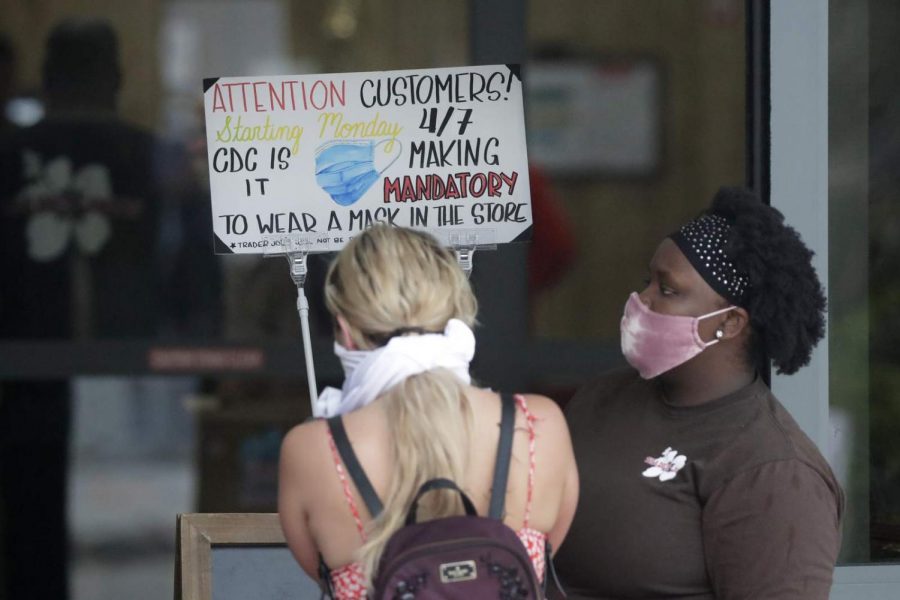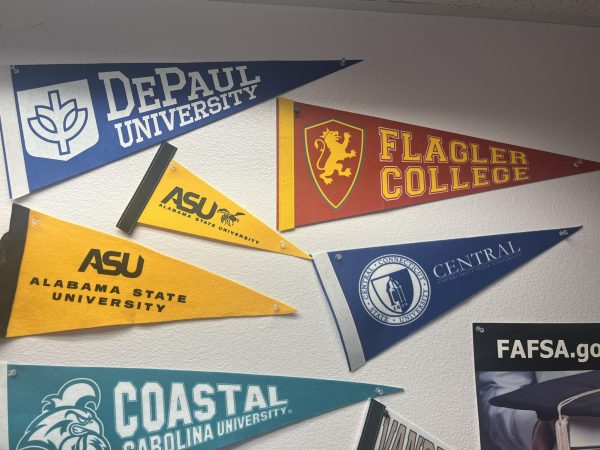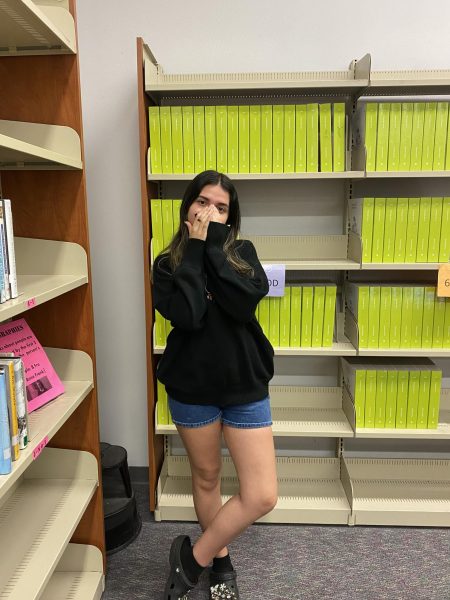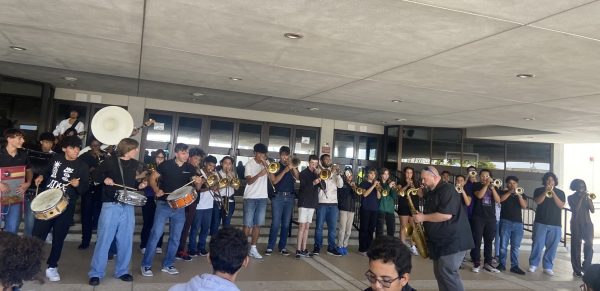How to avoid COVID-19
(Copyright 2020 The Associated Press. All rights reserved
An employee limiting the number of people allowed to enter a grocery store in Miami Beach.
April 9, 2020
With the threat of COVID-19 reaching almost every city and state in America, many governors have initiated Stay at Home Orders, intended to keep people out of public places and away from each other in order to lower transmission of the virus.
Many states have shut down public areas, such as dine-in restaurants, movie theaters, beaches, parks and retail shops. However, most states have allowed what they deemed essential business to stay open. Essential businesses include take out restaurants, grocery stores, food delivery services, medical offices, emergency services and many government offices. Transportation services such as buses, airlines, taxis and trains continue to operate; this presents a problem for the workers who may be exposed to COVID-19 on the job.
Recently, Jason Hargrove, a bus driver in Detroit, Michigan, posted a video on Facebook after a situation occurred while he was driving when a passenger on his bus began coughing repeatedly without covering her mouth. In the video, he explained how he felt upset and concerned not only for himself, but for the other passengers on the bus who may have been exposed to the virus. He said he wished more people would take the warnings seriously. Sadly, Hargrove contracted the virus five days after making the video and died shortly thereafter from the virus.
In addition to incidents such as the aforementioned, multiple churches throughout the country still refuse to close during this time and encourage individuals who attend to shake hands, against the advice of healthcare officials. Although churches are exempt from most state rules such as stopping large gatherings, local officials still encourage them to take extra precautions, as many who attend are at high risk for not only contracting the virus but also unknowingly aiding its perpetual spread throughout the larger communities. Several churches seeking to protect their members have transitioned their services to online.
Many questions have been raised as to how essential employees and the general public can remain safe during this pandemic and what responsibility employers have to protect them. The Centers for Disease Control is now recommending people wear face masks in public spaces, and while wearing a mask does not ensure individuals won’t contract the virus, it has been shown to protect others, should the person wearing the mask be a carrier. Still, many are not listening to the warnings, which puts others at risk. Employees from companies such as Amazon have complained that they are working in conditions which put them in danger, such as being in close contact with other employees and unable to maintain social distancing guidelines, as well as not having access to hand sanitizer and masks. This could result not only in the employees becoming sick, but also transmitting the virus to co-workers, and depending on their level of contact with others, members of the public as well. Although Amazon claims the environment is relatively safe, many employees disagree.
So how can people protect themselves? The CDC has recommended safety guidelines including: staying at home and only leaving the house when absolutely necessary for things like food and medical appointments, wearing a mask when out in public, using hand sanitizer and washing hands frequently for 20 seconds, avoiding stores, choosing delivery, and sanitizing any goods brought into the home. If you have to go out, keep distance between the people around you, cover your mouth and nose when you have to cough and sneeze, and avoid touching your face. “No crowds more than 10 people, keep 6 feet away, avoid crowded places, telework when you can – those are the kind of things that if we keep doing, we’re going to see an even greater impact,” said Dr. Anthony Fauci, Director of the National Institute of Allergy and Infectious Diseases and member of the Coronavirus Task Force.












